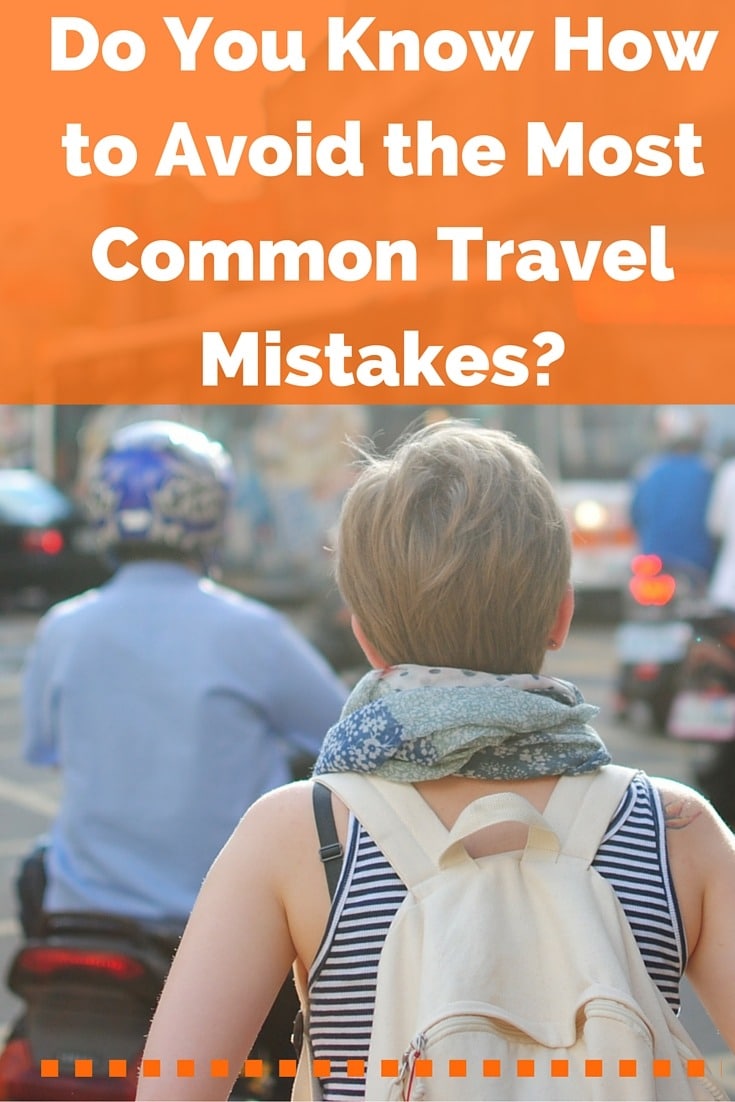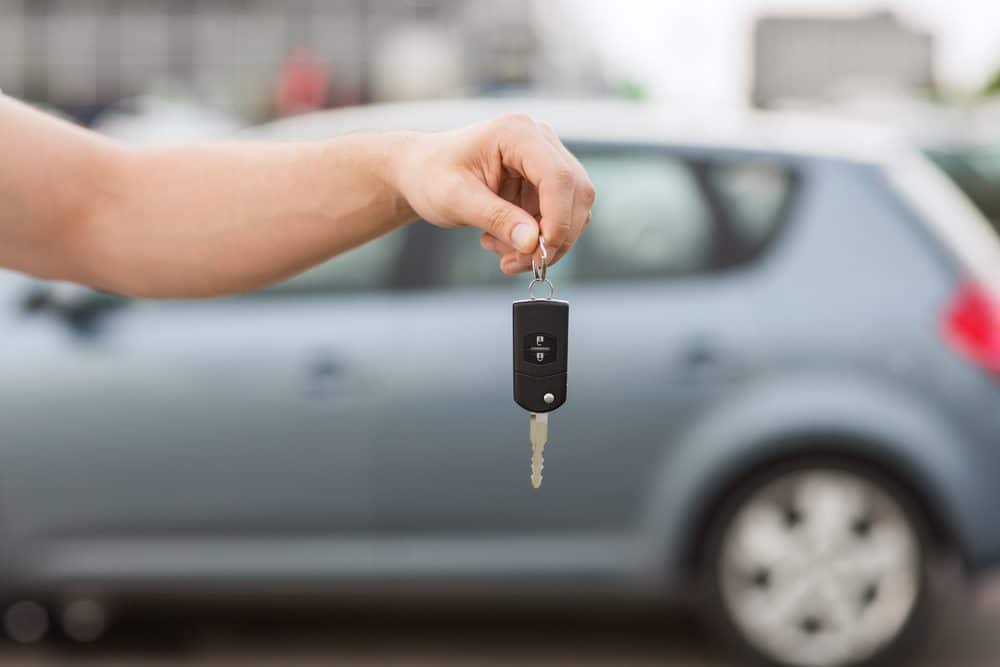Nobody likes making mistakes, especially travel mistakes. After dreaming of a destination for what feels like forever, you want everything to go smoothly.
But, in the excitement of researching new destinations, finding deals, and making reservations, it’s easy to overlook the small, yet very important, details that could lead to some serious travel mistakes!
Whether you’re a once-a-year traveler or have the travel bug, like me, preparing and planning are the best ways to (hopefully!) avoid the most common travel mistakes!
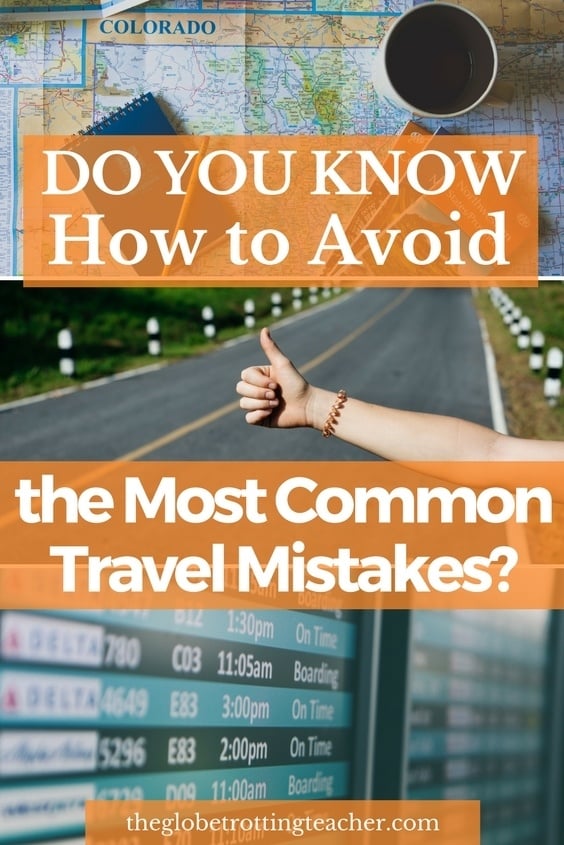
How to Avoid the Most Common Travel Mistakes
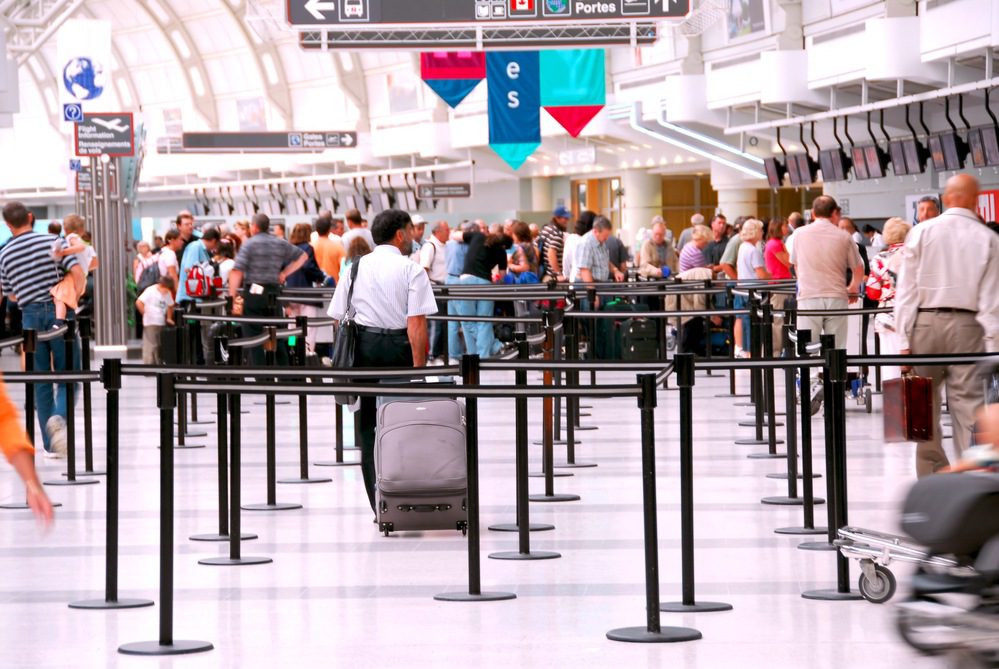
Travel Reservations
Have you ever showed up to the airport for your flight home only to find you’ve booked your return for that date in the wrong month?
Or maybe you’ve purchased a cruise that departs the day before you arrive in the port city? What should you do?
Before Booking:
Keep that click-happy finger under control! Don’t purchase that flight, cruise, hotel, or vacation package until you’ve double-checked all the details.
- Are the dates correct?
- Did you select the right flights?
- Is your name spelled correctly?
- Have you chosen the right destination?!
- Are you flying into or out of your intended airport?
After Booking:
If you catch a mistake within 24 hours, it’s possible to cancel an airline ticket with no penalty. Keep in mind, even if you immediately rebook, you may not end up with the same deal.
If More Than 24 Hours Has Passed:
Watch for schedule changes to flights.
If an airline changes a flight’s times, you can cancel or rebook for no fees. This is also useful if you need to cancel for any reason. Wait until 24 hours before your flight to cancel in the hopes of a schedule change getting you out of paying a cancellation fee.
Call the airline, hotel, or booking agent and explain what happened.
It’s not entirely unheard of for an airline or travel company to cut its customers a break. My sister was lucky enough to have JetBlue waive fees for her family of 5 because of a booking mistake simply for calling and politely(!) pleading her case.
Take advantage of travel insurance.
Whether you purchased a travel insurance policy through a marketplace like AARDY or paid for your trip with a travel rewards credit card that offers coverage like the Chase Sapphire Reserve, find out the terms protecting you from changes, cancellations, and even delays.
Understand you may have to pay for your mistake.
It’s never fun learning the hard way to double-check travel reservations. Just don’t let it put a damper on the actual trip!
Passports

In 2007, the Western Hemisphere Travel Initiative went into effect requiring a valid passport for international travel. This includes travel from the U.S. to the Caribbean, Mexico, and Canada. Adult passports are valid for 10 years while a child’s passport is valid for 5 years.
ProTip: Starting May 3, 2023, a new REAL ID law will go into effect. You will need a REAL ID-compliant driver’s license for domestic flights. You can also just use your passport or other accepted IDs like a U.S. Military Card or a Global Entry Card.
Before Traveling:
Do you need to apply for a passport?
First-time passport applications must be done in person at a Passport Acceptance Facility. Allow at least 4-6 weeks to receive your new passport or be prepared to pay extra for expedited service.
Is your passport valid?
Check the date on your passport. Many countries require travelers to have a passport that is valid for at least 6 months beyond their return date. Passport renewals can be done by mail or, if need be, in person at a Passport Agency. The timing as above for first-time applications applies here, as well.
Does your passport have enough pages?
As of 2016, you can no longer add pages to your passport booklet. Be sure your passport has at least 2 blank pages or else you may not be permitted to depart for and/or enter your destination.
Is your personal information all correct?
If you notice any errors, like a misspelling of your name, incorrect date of birth, or even the wrong gender marked, schedule an appointment right away at your state’s Passport Agency.
Make copies and take photos of your passport.
You can leave the paper copies at home with a trusted friend or family member just in case you need to verify your residency. You should also take a photo of your passport and save it to a cloud-based service, like Dropbox or Google Drive in order to access the photo of your passport from abroad should it get lost or stolen.
Do you need a visa?
Check the visa requirements for the countries you’re visiting. Some have a visa-on-arrival system at the airport while other countries require an advance application.
I almost missed one of my Patagonia flights because I didn’t have my Argentinian visa sorted out correctly. (No longer needed, by the way.) The bottom line is to do your homework so you don’t get stuck at the airport.
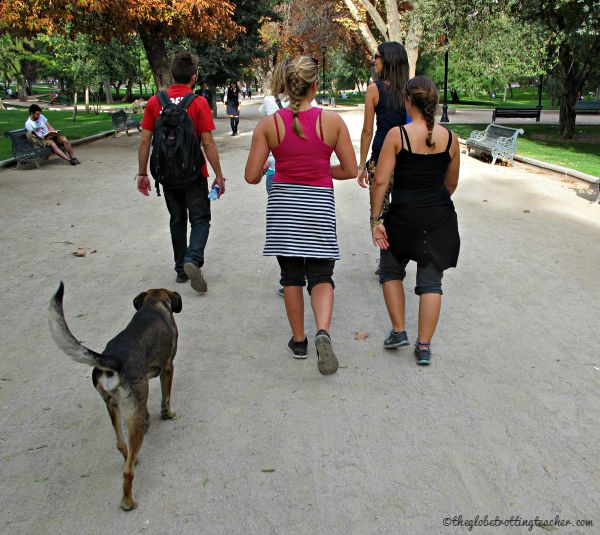
While Traveling:
Many accommodations will ask for your passport upon check-in to record the necessary legal information. In some cases, you might be asked to leave your passport at the front desk for a short time because the paperwork is lengthy.
First, trust your gut. If you don’t feel comfortable doing that, smile and say you’d prefer to wait. Otherwise, check back within 30 minutes to get your passport back.
Don’t carry your passport on you.
Lock your passport in the hotel safe with other valuables. Use a Pacsafe to secure your bag if you’re staying at hostels, guesthouses, or other accommodations with no safe.
If you need a form of identification, get a passport card. The card is separate from a passport and not suitable to use for international travel on its own, but it is an I.D. card and serves as proof of U.S. residency should your passport get lost or taken.
If you think your passport is lost or has been taken…
Take a deep breath and be sure it is, in fact, missing. You don’t want to report a missing passport, only to find it shoved under your socks in your suitcase.
If your passport is truly missing or has been stolen, report it to the U.S. embassy as soon as you confirm it is gone.
Traveling soon?
Don’t go without travel insurance. AARDY is a marketplace that lets you compare different types of coverage to suit your trip and the type of traveler you are.
Medical Emergencies
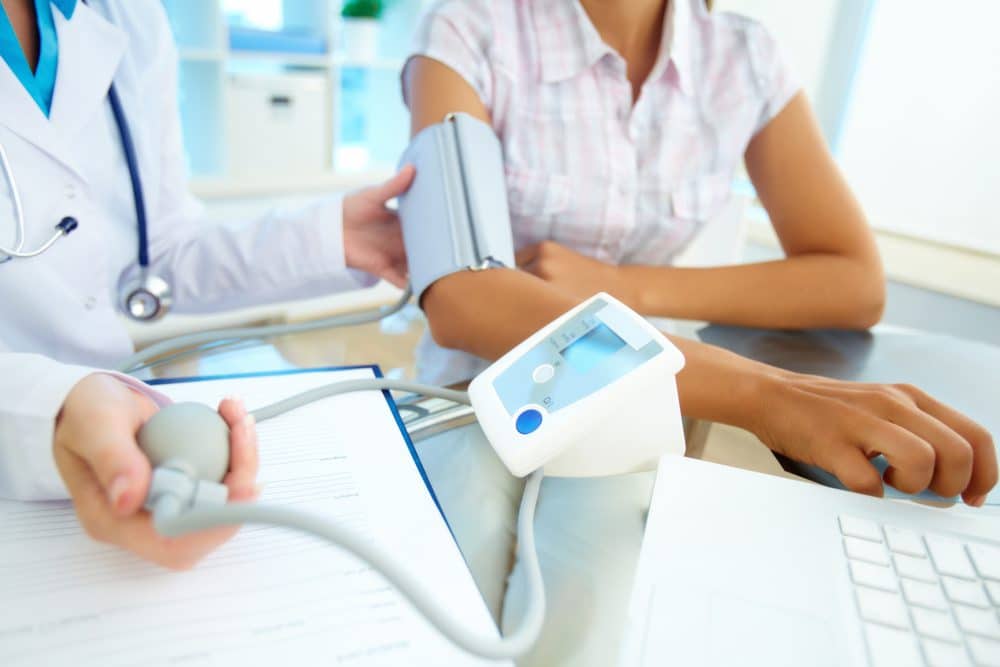
No one thinks they’ll be sick or need medical care while traveling abroad, but it can happen to anyone. Reduce the risks by planning ahead and being prepared.
Before Traveling:
Check with your doctor and consult the Centers for Disease Control.
At least 3 months in advance, find out the necessary and recommended vaccinations and precautions for the countries you’ll be visiting. In some places, certain vaccinations like Yellow Fever are required to enter the country, and in some cases, you might find a shortage of the vaccine in your area.
For my trip to Africa, I went to a clinic specializing in travel vaccines called Passport Health.
Get travel insurance.
Remembering the $10k Coast Guard helicopter ride to airlift you off of a Caribbean Cruise is surely not the lifelong memory for which you were hoping. Whether you have a bad bout of traveler’s stomach or slip getting into the shower and break your wrist, sickness and accidents happen and most domestic medical coverage plans won’t cover you outside the country.
Program your travel insurance emergency number into your phone…just…in…case! Do you really want to be searching for it or trying to connect to shoddy Wifi when you’re sick or injured?
Bring all prescription medications.
Make sure you have what you need for the amount of time you’ll be traveling. Avoid security questions by carrying your medications in clearly labeled bottles.
Consider Travel Probiotics
Probiotics are believed to help digestive health but also overall immunity. I take travel probiotics before and during travel to help my body fight everything from airport germs to unfamiliar foods.
Check the CDC for Food & Drink Travel Safety
The CDC gives knowledge-backed recommendations on what foods and drinks are safe to consume.

While Traveling:
Call your travel insurance’s emergency hotline.
As soon as you know you need medical attention, make the call.
They can give advice on the nearest medical facilities and advise you on what paperwork you need for reimbursement. They can even help get a family member to you or assist with a minor child in your care.
Have a credit card with “space” to charge medical expenses upfront.
Most insurance policies will reimburse you after the fact meaning you’ll need to pay all medical bills on-site. Some credit cards also come with basic travel insurance protections and can help you get reimbursed later on.
Keep all receipts, bills, and paperwork related to the testing and treatment received.
Store all copies of papers securely. Take photos of the documents as well. Be sure you can get reimbursed later without any hiccups!
Acts of Violence/Natural Disasters

Unfortunately, this makes the list, but only as something to be aware of and certainly NOT something to stop you from traveling. Living in fear and not doing the things we want only signals victory to criminals, terrorists, and others who would do us harm.
Even natural disasters can wreak unexpected havoc on the most carefully developed plans.
Before Traveling:
Check for travel alerts.
But absolutely DO think rationally about the information. Never let sensational media stories make up your mind to travel or not. And, keep in mind, many countries urge their citizens NOT to visit the United States because of the risk of gun violence.
If you’re headed abroad, particularly to a place or a part of the world experiencing unrest, enroll in STEP. The U.S. Government will keep you in-the-know with important information and alerts about your destination and can offer assistance while away from home. STEP is a benefit in the event of acts of violence, natural disasters or even a family emergency back home.
While Traveling:
If you’ve been the victim of a crime, report it to local authorities and the local U.S. embassy immediately.
In the event of unrest or natural disaster, contact your family as soon as possible to let them know your whereabouts. Posting on social media, like Facebook, is a great way to let people back home know you’re ok.
You should also contact the nearest U.S. embassy for advice and assistance on how to proceed safely.
Most travel mishaps can absolutely be avoided with a bit of planning! For those unexpected things that creep into your travel plans, being prepared eases your mind and can prevent anything further from derailing your trip.
Have you made any travel mistakes? How have you handled travel mishaps?
Like this post? Please share it on social media using the share buttons below!
